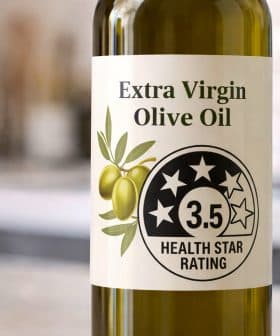Olive Oil Reduces Cardiovascular Risk Markers in Fibromyalgia Patients

 Apr. 13, 2020 11:27 UTC
Apr. 13, 2020 11:27 UTCA recent study found that regular consumption of olive oil can reduce cardiovascular risk factors in women with fibromyalgia, who have a higher mortality risk. The research showed that both extra virgin olive oil and refined olive oil can improve cardiovascular markers and inflammatory parameters in female fibromyalgia patients.
The regular use of olive oil has been found to reduce cardiovascular risk factors for female sufferers of fibromyalgia, according to a new study.
The beneficial properties of olive oil in women with fibromyalgia may be related to its fatty acid composition.
While olive oil is a well-known remedy for many health conditions, new research published in the open-access journal Nutrients went a step further in identifying the benefits for fibromyalgia female patients, who currently have a 30 percent higher risk of mortality.
“Our results have shown that consumption of olive oil may have anti-thrombotic and anti-inflammatory properties in women with fibromyalgia, thus improving a number of cardiovascular risk markers,” Francisco Molina, a researcher at the University of Jaén and one of the authors of the study, told Olive Oil Times.
See Also:Olive Oil Health NewsIn a previous study, the same research team found that fibromyalgia female patients often show altered levels of several thrombosis-related parameters when compared to healthy women. Those parameters, according to the new research, can be returned to the same levels found in healthy women through the regular consumption of olive oil.
“In this study, we focused on examining whether the diet and specifically olive oil, could modulate parameters related to a higher risk,” noted Molina.
The study was conducted using both extra virgin olive oil and refined olive oil (ROO). Extra virgin olive oil is collected by crushing olives, while ROO is extracted using chemical processes. The oils have some differences, but both retain monounsaturated fatty acids.
“The beneficial properties of olive oil in women with fibromyalgia may be related to its fatty acid composition,” Molina said. “For the first time, the results of our study have revealed that consumption of both EVOO and ROO may improve a number of cardiovascular risk markers in patients with fibromyalgia, evidencing the anti-thrombotic and anti-inflammatory properties of olive oil.”
He said that improvement was seen in the inflammatory marker of erythrocyte sedimentation rate values, among study participants who used EVOO as well as those who used ROO. The research also found that EVOO consumption improved the red blood cell count, while ROO intake improved mean platelet volume, platelet distribution width, fibrinogen levels and the inflammatory marker neutrophil-to-lymphocyte ratio.
“We found that consumption of EVOO significantly improved both functional capacity in activities of daily living and health-related psychological status in women with fibromyalgia. The level of musculoskeletal pain was also improved, but in a non-statistically significant way. Therefore, all these data show olive oil as one of the dietary fats with more health-related benefits,” Molina said
The research team also included Alma Rus, Maria Encarnación Aguilar-Ferrándiz and Ramón Carmona from the University of Granada, and Maria Luisa del Moral and Maria Josefa Martínez-Ramírez from the University of Jaén.


 Paolo DeAndreis
Paolo DeAndreis






